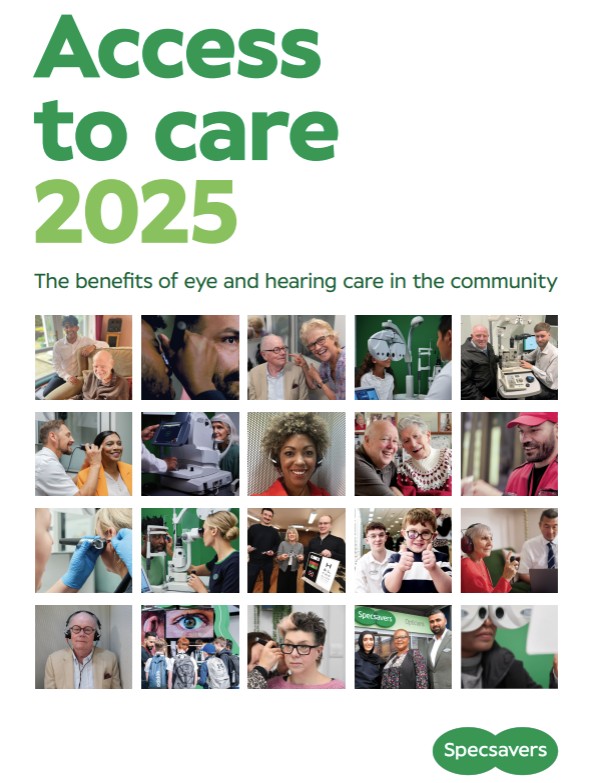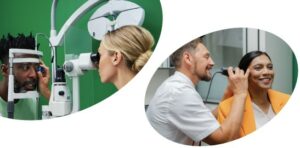Expand NHS community eye and hearing care to boost patient access
Health leaders are urging the government to expand community eye and hearing services, arguing that enhanced local care models will benefit patients and support economic growth.
The call for greater use of proven local care models is set out in a new Specsavers report, featuring contributions from senior figures including leading clinicians, the founder of Specsavers and the NHS Confederation.
Inconsistent access
Despite parliamentarians and policy makers acknowledging the role of community optometry and audiology in neighbourhood health, access remains inconsistent, notes the report.

Specsavers clinical services director for optics Giles Edmonds and chief audiologist Gordon Harrison say: 'We are calling for consistent community glaucoma services, universal access to urgent eye care via high-street optometrists and a nationally commissioned NHS primary care audiology service, to ensure timely care for people with age-related hearing loss.'
They add: 'This report highlights proven community models that improve efficiency, ensuring more patients get the care they need, as soon as they need it.'
 They add: 'Our sector has the capacity, technology, and skills to do more. National governments, health boards, and ICBs must make the right policy decisions to transform access, offering patients greater convenience, choice, and control.'
They add: 'Our sector has the capacity, technology, and skills to do more. National governments, health boards, and ICBs must make the right policy decisions to transform access, offering patients greater convenience, choice, and control.'
ABDO clinical and policy director Max Halford, writing in the report, says: 'We have thousands of "hubs" across the UK - they are the high street practices our patients attend every day – with highly trained staff ready to offer more care to patients.'
NHS Confederation chief executive: 'We must evolve'
in the report’s forward, NHS Confederation chief executive Matthew Taylor says that changing models of care is no longer optional with demand on the NHS rising and an ageing population living longer with increasing complex needs.
‘We must evolve and adapt to new and different ways of working to serve our local communities best so the NHS as a model of care, free at the point of need, survives well into the 21st century,’ he says.
‘The government’s 10-Year Health Plan provides the opportunity to drive this fundamental change and some of the examples detailed will help pave the way.’
Specsavers founder: ‘We are ready and the need is urgent’
Specsavers founder and chairman Doug Perkins calls for primary care optometry and audiology to be consistently recognised as essential NHS partners.
'We are ready, and the need is urgent,’ he says. ‘The 10-year health plan gives local leaders the power to innovate. We embrace this shift and call on policymakers to act now to tackle the “postcode lottery” in access to eye and hearing health services.’
He says that policymakers can do this through national commissioning, shifting funding into communities, and helping the public understand that the high street - not A&E - is the usually the most appropriate place for eye and hearing care. He describes Specsavers as an ‘engine of change’, adding: ‘Let’s continue to build a healthcare system that works for everyone.’
Economic and social benefits highlighted
The report also details how existing community services not only create jobs and boost high street footfall, but can also help, for example, to reduce the significant economic cost of hearing loss that runs into billions of pounds. The publication is timely with Health and Social Care Secretary Wes Streeting's 10-year plan for health and ambition to support economic development.
The report is available to download from specsavers.co.uk/reports/access-to-care-2025.
